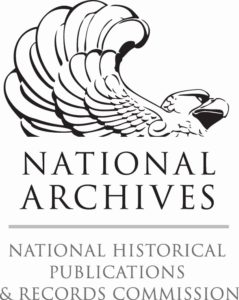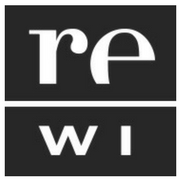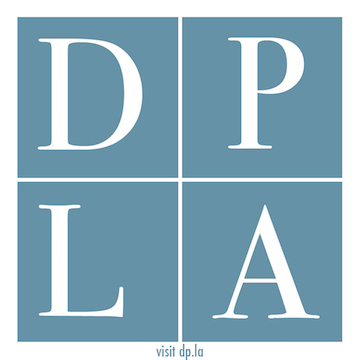Thanks to an Archives Collaboratives Planning Grant from the National Historical Publications and Records Commission (NHPRC), from July-December 2019, Recollection Wisconsin undertook a community-driven strategic planning process to build digital readiness in local historical societies and historic preservation groups. Recollection Wisconsin partnered with WiLS and the Wisconsin Historical Society to conduct a survey of the Society’s local affiliates and facilitate community conversations and strategic planning sessions. The goal was to develop a plan for a Digital Readiness Community of Practice to increase affiliates’ capacity to create, manage and share digitized historical resources.
The Planning a Community of Practice for Digital Readiness in Wisconsin White Paper documents the project plan, process and outcomes including key information-gathering activities and data.
Phase One: Digital Readiness Survey
In August 2019, we conducted a web based survey to learn more about Wisconsin local history organizations and their digital readiness needs. Over 125 individuals representing approximately 75 organizations completed our survey.
Phase Two: Community Conversations
In September and October 2019, we hosted five Community Conversations at regional local history meetings and gatherings of other history consortia in Baileys Harbor, Florence, Marshfield, Stanley, and Waukesha, Wisconsin. Conversation facilitators guided participants through a range of activities to spark discussion focused on goals and challenges related to digital readiness. Participants also reflected on the many benefits and barriers to having their historical materials digitized and publicly available online. Common themes included lack of time and resources to complete this work and a universal desire to improve access to collections and engage new audiences in local history. Participants were eager to share their ideas and
learn from one another, and an overwhelming sense of pride in community history permeated the discussions.
Phase Three: Strategic Planning
In October and November 2019, we hosted three strategic planning sessions with members of the Wisconsin local history community. WiLS Community Liaison and Service Specialist Bruce Smith led a group of stakeholders through planning activities to further hone ideas and goals for a statewide digital readiness community of practice. This work resulted in a community-driven strategic plan, which articulates a statement of purpose and four shared goals.
We are a supportive, inclusive, and connected community of public history practitioners that shares resources, expertise, and knowledge of the creation and management of digital collections in order to collect, preserve, and provide equitable access to diverse histories. We facilitate strong and responsive leadership and communication across our community and within our own organizations.
Our histories have the power to enrich and connect people and communities in new and meaningful ways. By coordinating our efforts, we can create a sustainable and relevant future for Wisconsin’s local history organizations and historic preservation groups through more effective and efficient development of digital collections.
Strategic Plan Statement of Purpose
Strategic plan goals:
- The Digital Readiness Community of Practice (CoP) will have a sustainable leadership structure and communication strategy that will guide the launch and growth of the CoP.
- Wisconsin’s public history organizations will have a road map for undertaking digital collections creation and management. They will have access to best practices, guidelines, and tools that accommodate a range of needs and resources, and they will understand how to use those resources to support local goals and capacities.
- Wisconsin’s public history organizations will have platforms, tools, and knowledge to improve public access to and engagement with digital community histories.
- Public history organizations will have the tools and resources they need to increase support for and longevity of digital collections work. They will understand strategies for approaching this work sustainably and ensuring continuity within their own organizations by building strong cadres of volunteers, documenting policies and procedures, and developing succession plans.
Thank you!
Our sincere thanks to the many individuals representing over 100 local history organizations throughout Wisconsin who participated in our web survey and community conversations in Fall 2019. Their contributions were invaluable to the process and end result.
We’d also like to recognize the following individuals for their time and commitment to the strategic planning work: Chris Allen (Kenosha County Historical Society), Kristin Arnold (Rock County Historical Society), Ben Barbera (Milwaukee County Historical Society), Bonnie Byrd (Waukesha County Historical Society), Michelle Gobert (Forest County Historical Society), Travis Gross (Sheboygan County Historical Society), Jennifer Gurske (Madison Trust for Historic Preservation), Joe Hermolin (Langlade County Historical Society), Emily Irwin (Ephraim Historical Foundation), Cheryl Kern-Simirenko (Stanley Area Historical Society), Rhys Kuzdas (Door County Maritime Museum), Kristen Leffelman (Wisconsin Historical Society), Dustin Mack (History Museum at the Castle), Janean Mollet-Van Beckum (History Center of Washington County), Tammy Schutz (Barron County Historical Society), Janet Seymour (Wisconsin Historical Society), Bruce Smith (WiLS), Katie Stilp (Appleton Public Library), and Robin Untz (Lake Mills Aztalan Historical Society).
What’s a Community of Practice?
It’s a way to learn by working together. As described by Etienne Wenger, Richard McDermott and William M. Snyder in their 2002 book Cultivating Communities of Practice, a Community of Practice (COP) is “a group of people who share a common concern, set of problems, or passion about a topic and deepen their knowledge and expertise in this area by interacting on an ongoing basis.”
What is digital readiness?
We define digital readiness broadly as having the knowledge, tools, resources and infrastructure to provide online public access to archives and historical records.

Planning a Community of Practice for Digital Readiness in Wisconsin was supported by an Archives Collaboratives Planning Grant from the National Historical Publications and Records Commission (NHPRC), the granting arm of the National Archives.



You must be logged in to post a comment.